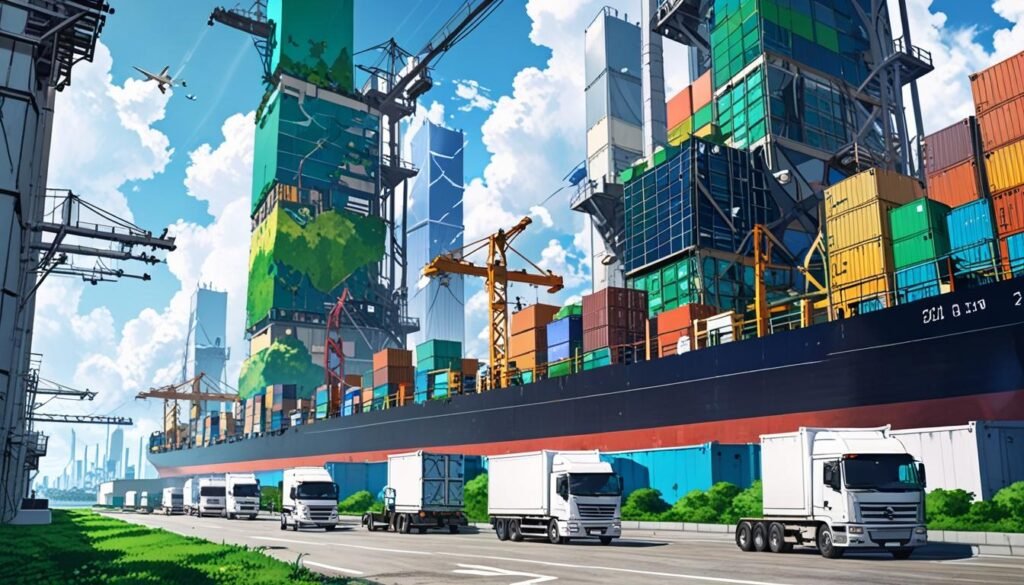**Global:** KPMG’s 2025 report reveals critical trends in infrastructure and transport, urging standardised supply chains, digital twin adoption, talent development, resilient investments, and sustainable practices to overcome climate, economic, and technological disruptions worldwide.
KPMG’s recent report, The Great Reset: Emerging Trends in Infrastructure and Transport 2025 edition, outlines transformative trends reshaping the global infrastructure and transport sectors amid mounting climate, economic, and technological challenges. The report offers a comprehensive analysis of current developments, accompanied by strategic recommendations for industry leaders seeking to navigate these shifting landscapes.
Chintan Patel, Partner in Deal Advisory for Transport and Logistics at KPMG India, highlighted the significance of harmonising supply chain practices. Speaking to Construction World, Patel said, “In today’s interconnected world, the lack of standardized supply chain practices is not just an operational challenge—it’s an environmental and economic one. We’re witnessing how unstandardized processes, infrastructure, and regulations are driving up costs and carbon emissions. As industry leaders, it is imperative we address these inefficiencies and move towards unified standards to unlock more sustainable and resilient global supply chains.”
One key area of transformation identified in the report is the adoption of digital twins—highly detailed digital representations of physical infrastructure assets. KPMG’s research indicates that digital twins are increasingly integral to infrastructure management by enhancing operational efficiency, enabling predictive maintenance, and supporting strategic long-term planning. The consultancy firm projects that within three years, digital twins are expected to become foundational in how organisations operate and manage infrastructure assets.
The construction and infrastructure sectors continue to grapple with a notable talent shortage, particularly in digitally proficient professionals. The report emphasises the urgency for companies to cultivate a workforce skilled in new technologies and innovation. It stresses the importance of investing in training schemes to attract and retain talent capable of meeting evolving sector demands.
Addressing future challenges, KPMG forecasts significant shifts in infrastructure systems driven by the combined impacts of climate change, fluctuating economic conditions, and rapid technology progress. The report advises infrastructure leaders to pursue bold and adaptive strategies, reconsidering conventional methods in order to foster resilience and growth within an unpredictable global environment.
Global supply chains remain fragmented, the report notes, causing inflated costs and increased environmental footprints. Standardising supply chain processes, infrastructure, and regulatory frameworks emerges as a critical measure to enhance efficiency, reduce expenses, and minimise ecological impacts across the worldwide network.
The widening gap in infrastructure investment funds is set to catalyse a move towards privatisation, according to the analysis. Despite concerns over maintaining service quality and accessibility, KPMG advocates the monetisation of assets and the deployment of innovative funding tools to meet escalating needs for robust infrastructure.
On the energy front, the transition away from fossil fuels is at a strategic inflection point. While renewable technologies like solar and wind have seen rapid advancement, decarbonising more complex sectors remains a formidable challenge. The report underscores the need for balanced solutions that weigh economic viability alongside environmental goals, with blended finance models anticipated to play a pivotal role in supporting these efforts.
Given the increasing frequency of extreme weather events, enhancing infrastructure resilience takes on elevated importance. The report urges asset owners to actively manage risk by modernising ageing infrastructure portfolios to prevent failures, thereby safeguarding public safety and ensuring uninterrupted services.
In the shipping industry—a vital component of global trade—fluctuating shipping rates driven by trade wars, tariffs, and shifting trade dynamics are forecast to contribute to heightened market disruption. KPMG encourages shipping executives to adopt innovation, sustainability initiatives, and cooperative approaches as strategies to sustain competitiveness.
Finally, sustainability within infrastructure is progressing from aspirational goals towards tangible implementation. KPMG identifies a “missing middle” between sustainability ambitions and the measurable actions required to achieve them. The report forecasts intensified focus on sustainable procurement, construction methods, and operational practices across the sector to deliver concrete environmental benefits.
Overall, The Great Reset underscores the urgency for coordinated action and forward-thinking leadership across infrastructure and transport industries to adapt to the multifaceted developments anticipated by 2025.
Source: Noah Wire Services





